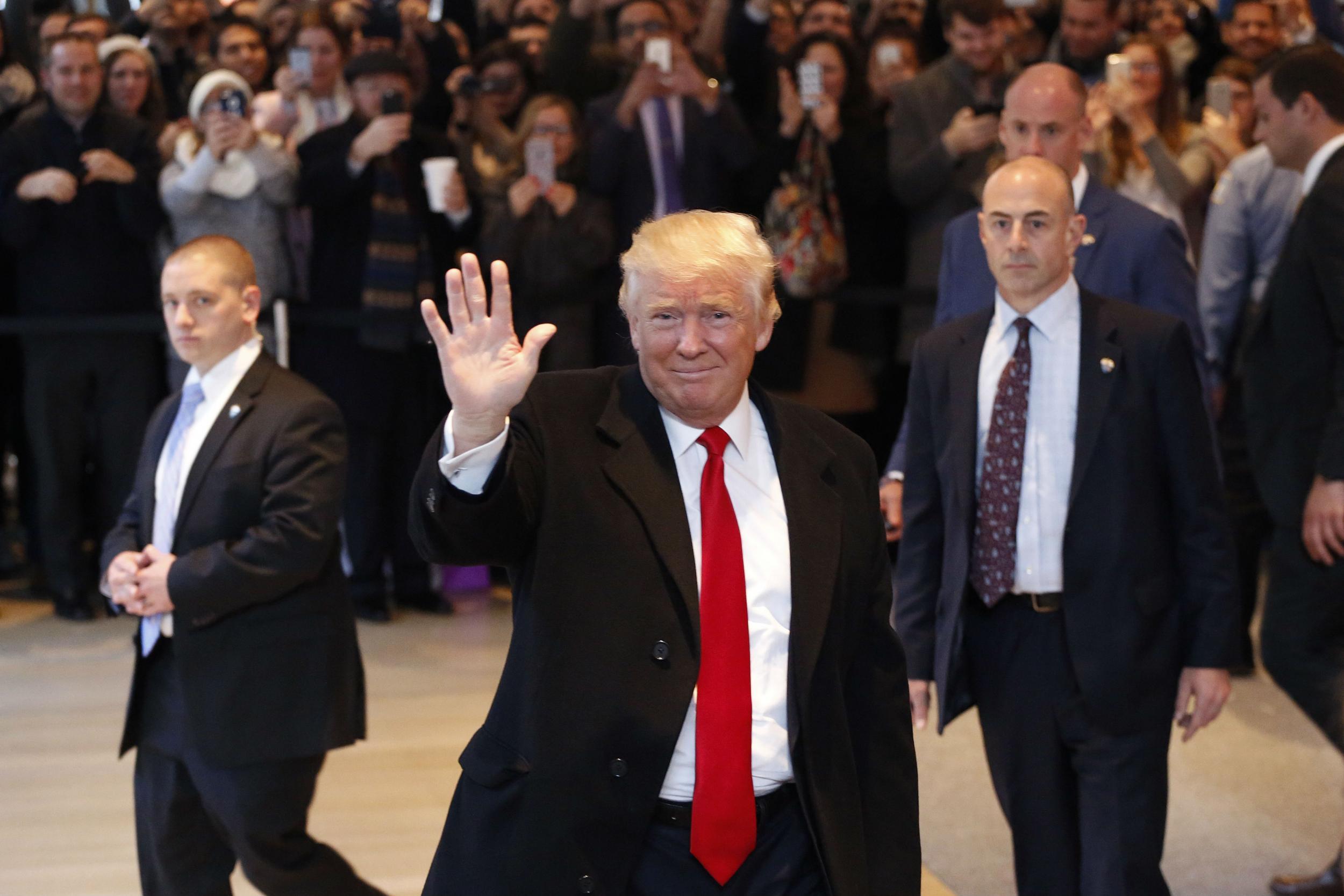Electoral college must not elect Donald Trump unless he sells his business, say Obama and Bush's ethics lawyers
The president-elect is facing growing calls to divest from his commercial interests before he steps into the White House

Your support helps us to tell the story
From reproductive rights to climate change to Big Tech, The Independent is on the ground when the story is developing. Whether it's investigating the financials of Elon Musk's pro-Trump PAC or producing our latest documentary, 'The A Word', which shines a light on the American women fighting for reproductive rights, we know how important it is to parse out the facts from the messaging.
At such a critical moment in US history, we need reporters on the ground. Your donation allows us to keep sending journalists to speak to both sides of the story.
The Independent is trusted by Americans across the entire political spectrum. And unlike many other quality news outlets, we choose not to lock Americans out of our reporting and analysis with paywalls. We believe quality journalism should be available to everyone, paid for by those who can afford it.
Your support makes all the difference.The former ethics lawyers for president Barack Obama and George W Bush have asked the electoral college to not appoint Donald Trump as the next president due to his potential conflicts of interest.
Richard Painter, former chief ethics counsel for Mr Bush, and Norman Eisen, former chief ethics counsel for Mr Obama, said that the president-elect must sell out from his real estate and business holdings before 19 December, when the electoral college officially appoints the next president.
As reported by ThinkProgress, Mr Eisen pointed to Article 1, Section 9 of the US constitution which prohibits presidents from accepting "any present, emolument, office, or title, or any kind whatever, from any king, price, or foreign state".
The most recent up-and-running example of a Trump business is the new hotel in Washington DC, which hosted a group of 100 diplomats this month, providing food and a tour of the expensive suites.
"The notion that his (through his agents) solicitation of those payments, and the foreign governments making of those payments, is unrelated to his office is laughable," Mr Eisen said.
Mr Painter said on CNN: "I don’t think the electoral college can vote for someone to become president if he’s going to be in violation of the constitution on day one and hasn’t assured us he’s not in violation."
Mr Trump recently told the New York Times that he "could run [his] business perfectly, and then run the country perfectly". He added that the "law [was] totally on [his] side, meaning, the president can’t have a conflict of interest".
The Founding Fathers might disagree.
In 1788, Virginia governor Edmund Jennings Randolph said during a constitutional debate that violating Article 1, Section 9 could result in impeachment, or displacement at the end of a four-year term.
Mr Eisen said another option was for Republicans in Congress to endorse Mr Trump's "exploitation of public office for private gain" and "authorise" any emoluments.
Mr Painter gave another suggestion: Mr Trump could agree to have his business audited and any payment from a foreign government would be handed to the US. But that still would not avoid violating the constitution, he said.
Harvard law professor Laurence Tribe shared the view that Mr Trump must divest to prevent potential conflicts of interest.
Mr Trump has already asked favours from politicians to help his businesses profit, including UK politicians to scrap wind farm proposals which would block the sea views from his Aberdeenshire golf course.
He has also come under fire for allowing his daughter Ivanka to sit in on meetings with heads of state, including Japanese prime minister Shinzo Abe.
Mr Trump pledged he would set up a "blind trust" to house his business assets and it would be looked after by his children.
Join our commenting forum
Join thought-provoking conversations, follow other Independent readers and see their replies
Comments